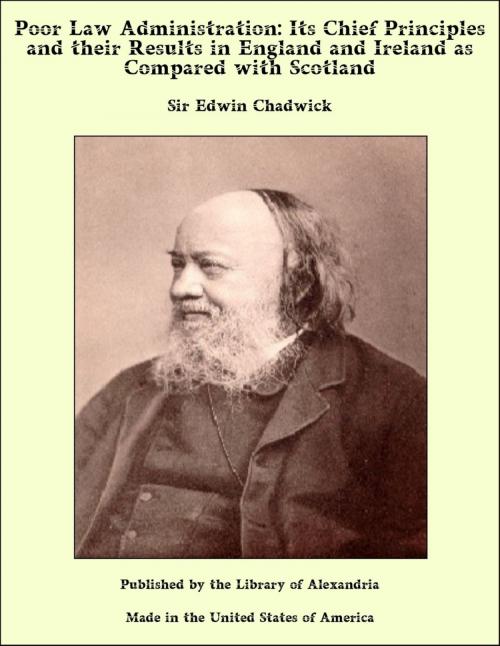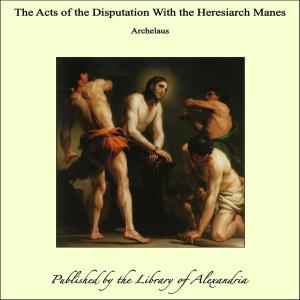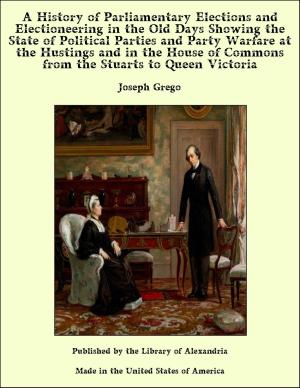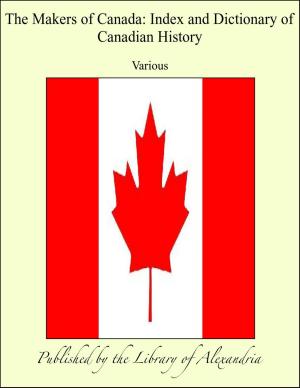Poor Law Administration: Its Chief Principles and their Results in England and Ireland as Compared with Scotland
Nonfiction, Religion & Spirituality, New Age, History, Fiction & Literature| Author: | Sir Edwin Chadwick | ISBN: | 9781465610966 |
| Publisher: | Library of Alexandria | Publication: | March 8, 2015 |
| Imprint: | Language: | English |
| Author: | Sir Edwin Chadwick |
| ISBN: | 9781465610966 |
| Publisher: | Library of Alexandria |
| Publication: | March 8, 2015 |
| Imprint: | |
| Language: | English |
When our Government was pressed on the subject of a Poor-law for Ireland, I confidently advised the adoption of a provision for the relief of the able-bodied, which, by some statesmen, was deemed to be for Ireland a wild and dangerous provision, but my confidence in it was derived from observation of the working of analogous principles of relief upon able-bodied Irish labourers in England. Besides the deep-seated evil of mendicancy, such a provision might, I considered, be brought to bear on the evils connected with the occupancy of land and upon agrarian disturbances. Economically considered, whatsoever may be the importance of the freedom of change of the ownership of land obtained by means of the great measure—the Incumbered Estates Act—of which the late Sir Robert Peel said it was so good a measure that he really wondered how it had ever passed—of even greater importance is freedom of change of the occupancy of the land, which should be facilitated and promoted in various ways, one of which is the assurance given to the cottier that he need not cling to the wretched mud hovel, for his children as well as himself, for that neither he nor they are now in any danger of perishing upon abandoning it, even if he fail to obtain a more productive occupancy. Under the Poor-law Amendment Act, extensive sales were made of cottages and plots of land, amounting, I believe, to a million or more in saleable value, which had fallen into the possession of the parishes, on account of the destitution of the cottier owners, but in a large proportion of cases, I believe, on their abandonment of them and the abandonment of the neighbourhoods for a higher return for labour to be obtained as wages elsewhere. The whole proceeding in this class of cases was one of benefit, in the greater return of produce to be obtained by their employment at the market rates of wages, as well as from the gain of produce to the country by superior or less expensive culture. Mr., now Sir George Nicholls, whose opinions were thought to be less extreme or more impartial than mine, was sent over to Ireland to examine and report on the measures of the nature of a legal provision which it was expedient to adopt. Upon a full and impartial examination, he reported decidedly in favour of a legal right being given to the able-bodied, and to a system of relief being instituted, in which entire and not partial relief should be given, and that relief in the workhouse should be the rule. By his exertions mainly, improved poorhouses have been constructed, and Ireland has had the advantage of an advanced system of relief, for which union chargeability in wide areas is substituted for the English law of relief under the law of parochial settlement.
When our Government was pressed on the subject of a Poor-law for Ireland, I confidently advised the adoption of a provision for the relief of the able-bodied, which, by some statesmen, was deemed to be for Ireland a wild and dangerous provision, but my confidence in it was derived from observation of the working of analogous principles of relief upon able-bodied Irish labourers in England. Besides the deep-seated evil of mendicancy, such a provision might, I considered, be brought to bear on the evils connected with the occupancy of land and upon agrarian disturbances. Economically considered, whatsoever may be the importance of the freedom of change of the ownership of land obtained by means of the great measure—the Incumbered Estates Act—of which the late Sir Robert Peel said it was so good a measure that he really wondered how it had ever passed—of even greater importance is freedom of change of the occupancy of the land, which should be facilitated and promoted in various ways, one of which is the assurance given to the cottier that he need not cling to the wretched mud hovel, for his children as well as himself, for that neither he nor they are now in any danger of perishing upon abandoning it, even if he fail to obtain a more productive occupancy. Under the Poor-law Amendment Act, extensive sales were made of cottages and plots of land, amounting, I believe, to a million or more in saleable value, which had fallen into the possession of the parishes, on account of the destitution of the cottier owners, but in a large proportion of cases, I believe, on their abandonment of them and the abandonment of the neighbourhoods for a higher return for labour to be obtained as wages elsewhere. The whole proceeding in this class of cases was one of benefit, in the greater return of produce to be obtained by their employment at the market rates of wages, as well as from the gain of produce to the country by superior or less expensive culture. Mr., now Sir George Nicholls, whose opinions were thought to be less extreme or more impartial than mine, was sent over to Ireland to examine and report on the measures of the nature of a legal provision which it was expedient to adopt. Upon a full and impartial examination, he reported decidedly in favour of a legal right being given to the able-bodied, and to a system of relief being instituted, in which entire and not partial relief should be given, and that relief in the workhouse should be the rule. By his exertions mainly, improved poorhouses have been constructed, and Ireland has had the advantage of an advanced system of relief, for which union chargeability in wide areas is substituted for the English law of relief under the law of parochial settlement.















